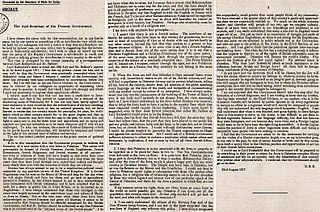Related Research Articles
New antisemitism is the concept that a new form of antisemitism developed in the late 20th and early 21st centuries, typically manifesting itself as anti-Zionism. The concept is included in some definitions of antisemitism, such as the working definition of antisemitism and the 3D test of antisemitism. The concept dates to the early 1970s.
The Canadian Jewish Congress was, for more than ninety years, the main advocacy group for the Jewish community in Canada. Regarded by many as the "Parliament of Canadian Jewry," the Congress was at the forefront of the struggle for human rights, equality, immigration reform and civil rights in Canada.

B'nai Brith Canada is a Canadian Jewish service organization and advocacy group. It is the Canadian chapter of B'nai B'rith International and has offices in Toronto, Winnipeg, Montreal, and Vancouver.
Mohamed Elmasry is a Canadian engineering professor, imam, and Muslim community leader.
The Canadian Islamic Congress (CIC) was a Canadian Muslim non-profit organization.
The Canadian Arab Federation (CAF) was formed in 1967 to represent the interests of Arab Canadians with respect to the formulation of public policy in Canada. It presently consists of over 40 member organizations.

Independent Jewish Voices Canada (IJV) is a Canadian Jewish advocacy organization. The organization was founded in 2008 as a result of a national conference called on behalf of the Alliance of Concerned Jewish Canadians. Though the membership is not public, in a letter written to a local municipality in 2022, they claim to have over 1,000 members across Canada of the approximately 335,000 Canadian Jews.
The Jewish lobby are individuals and groups predominantly in the Jewish diaspora that advocate for the interests of Jews and Jewish values. The lobby references the involvement and influence of Jews in politics and the political process, and includes organized groups such as the American Jewish Committee, the American Israel Public Affairs Committee, B'nai B'rith, and the Anti-Defamation League.

Brian Klug is Honorary Fellow in Social Philosophy at Campion Hall, Oxford and an emeritus member of the philosophy faculty at Oxford University. He is also an honorary fellow of the Parkes Institute for the Study of Jewish/non-Jewish Relations, University of Southampton and fellow of the College, Saint Xavier University, Chicago.
Independent Jewish Voices (IJV) is an organization launched on 5 February 2007 by 150 prominent British Jews including Nobel laureate Harold Pinter, historian Eric Hobsbawm, lawyer Sir Geoffrey Bindman, Lady Ellen Dahrendorf, film director Mike Leigh, and actors Stephen Fry and Zoë Wanamaker. The organization is reportedly "born out of a frustration with the widespread misconception that the Jews of this country speak with one voice—and that this voice supports the Israeli government's policies". IJV stated it was founded "to represent British Jews...in response to a perceived pro-Israeli bias in existing Jewish bodies in the UK", and, according to Hobsbawn, "as a counter-balance to the uncritical support for Israeli policies by established bodies such as the Board of Deputies of British Jews".

Canada and Israel share bilateral diplomatic, commercial, and cultural ties. Canada recognised Israel on 11 May 1949, three days before the first anniversary of the Israeli Declaration of Independence, and currently maintains an embassy in Tel Aviv; Israel maintains an embassy in Ottawa, at 50 O'Connor Street, and regional consulates in Montreal and Toronto.
Disinvestment from Israel is a campaign that aims to use disinvestment to pressure the government of Israel to put "an end to the Israeli occupation of Palestinian territories captured during the 1967 military campaign." The disinvestment campaign is related to other economic and political boycotts of Israel.

Anti-Zionism is opposition to Zionism. Although anti-Zionism is a heterogeneous phenomenon, all its proponents agree that the creation of the modern State of Israel, and the movement to create a sovereign Jewish state in the region of Palestine—a region partly coinciding with the biblical Land of Israel—was flawed or unjust in some way.
Antisemitism in Canada is the manifestation of hatred, hostility, harm, prejudice or discrimination against the Canadian Jewish people or Judaism as a religious, ethnic or racial group.
The Centre for Israel and Jewish Affairs is a Zionist and Jewish advocacy organization and an agency of the Jewish Federations of Canada. It was founded in 2004 as the Canadian Council for Israel and Jewish Advocacy (CCIJA) and headquartered in the district of North York within Toronto, Ontario.
The Ontario division of the Canadian Union of Public Employees (CUPE) has supported the Boycott, Divestment and Sanctions (BDS) campaign against Israel since 2006. Their stance has encountered opposition from the Canadian Jewish Congress and parts of the press but also widespread support from university professors, Independent Jewish Voices, Palestine House, Canadian Arab Federation and labour unions. In 2009 the CUPE Ontario university workers' committee proposed to extend the campaign to boycott any joint work with Israeli institutions that carry out military research. That resolution became the focus of extensive controversy and was modified in response to pressure from the CUPE national president; the amended version was brought before the CUPE Ontario conference in May 2009 and passed with a 2/3 majority.

Criticism of Israel is a subject of journalistic and scholarly commentary and research within the scope of international relations theory, expressed in terms of political science. Israel has faced international criticism since its establishment in 1948 relating to a variety of issues, many of which are centered around human rights violations in its occupation of the West Bank and the Gaza Strip.
Michael Neumann is a professor of philosophy at Trent University in Ontario, Canada. He is the author of What's Left? Radical Politics and the Radical Psyche (1988), The Rule of Law: Politicizing Ethics (2002) and The Case Against Israel (2005), and has published papers on utilitarianism and rationality.
The working definition of antisemitism, also called the International Holocaust Remembrance Alliance definition of antisemitism or IHRA definition, is a non-legally binding statement on what antisemitism is, that reads: "Antisemitism is a certain perception of Jews, which may be expressed as hatred toward Jews. Rhetorical and physical manifestations of antisemitism are directed toward Jewish or non-Jewish individuals and/or their property, toward Jewish community institutions and religious facilities." It was first published by European Monitoring Centre on Racism and Xenophobia (EUMC) in 2005 and then by the International Holocaust Remembrance Alliance (IHRA) in 2016. Accompanying the working definition, but of disputed status, are 11 illustrative examples whose purpose is described as guiding the IHRA in its work, seven of which relate to criticism of Israel.
Anti-Palestinianism or anti-Palestinian racism refers to prejudice, collective hatred, and discrimination directed at the Palestinian people for any variety of reasons. Since the mid-20th century, the phenomenon has largely overlapped with anti-Arab racism and Islamophobia due to the fact that the overwhelming majority of Palestinians today are Arabs and Muslims. Historically, however, anti-Palestinianism was more closely identified with European antisemitism, as far-right Europeans detested the Jewish people as undesirable foreigners from Palestine. Modern anti-Palestinianism—that is, xenophobia with regard to the Arab people of Palestine—is most common in Israel, the United States, and Lebanon, among other countries.
References
- ↑ Ryan, Sid, "Slurs will not silence us", Globe and Mail, pg A17, July 7, 2006.
- ↑ Block, Irwin, Anti-occupation group may win CJC acceptance; Membership was rejected in August letter Archived 2007-03-11 at the Wayback Machine , Montreal Gazette, October 29, 2006.
- ↑ "Alliance of Concerned Jewish Canadians slams Canadian Jewish Congress exclusion", Canada NewsWire, 3 July 2007, 15:41.
- ↑ Klug, Brian, Who speaks for the Jews of Britain, The Guardian, February 5, 2007
- ↑ "Independent Jewish Voices (Canada) » 2005 ACJC Statement of Principles". Archived from the original on 2011-07-26. Retrieved 2009-10-09.
- ↑ "B'Nai Brith Condemned for Supporting Security Certificates". Canadian Dimension. March 6, 2007.